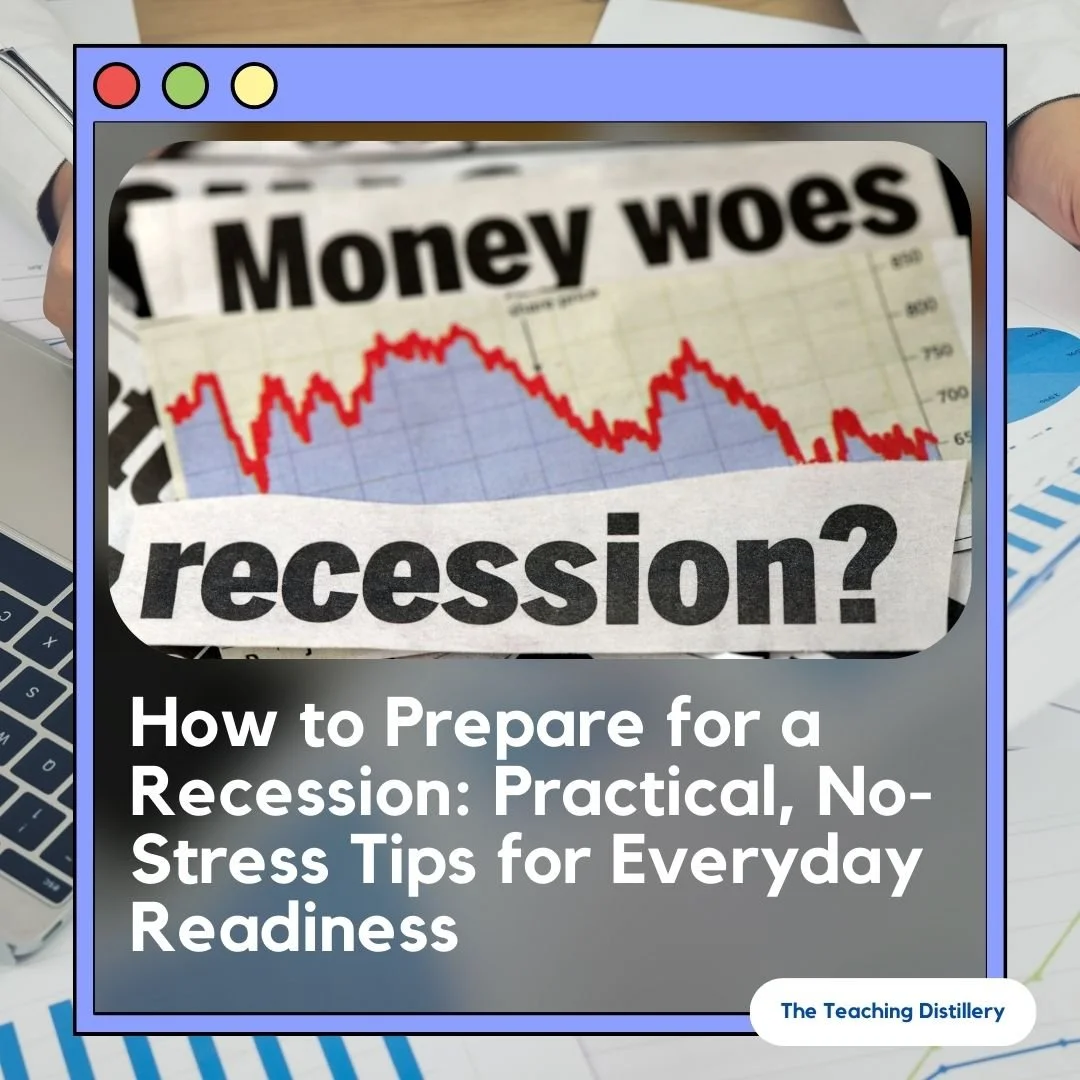How to Prepare for a Recession: Practical, No-Stress Tips for Everyday Readiness
Recessions are a normal part of the economic cycle, but they can still cause stress when they affect jobs, prices, and daily life. The good news is that you don’t need to panic or go to extremes to prepare. Small, steady actions can build a sense of control and stability. In this post, we’ll share practical, low-stress ways to get ready—especially when it comes to food, household items, and financial habits.
Why Prepare?
Preparing for a recession isn’t about expecting the worst—it's about being thoughtful. Job markets can tighten, prices can rise, and supply chains can slow down. Having a small buffer in place can help you weather minor disruptions with less worry.
1. Stock a Simple Pantry—Slowly and Strategically
You don’t need to fill your basement with pallets of canned goods. But a modest, well-stocked pantry can save you money and reduce stress.
Long-lasting pantry staples to build up over time:
Rice and pasta: Cheap, filling, and shelf-stable.
Dried beans and lentils: Packed with protein and nutrition.
Canned goods: Tomatoes, beans, tuna, soup, and vegetables are versatile and last for years.
Nut butters: High in calories, shelf-stable, and easy to eat.
Rolled oats and flour: Great for baking or making hearty breakfasts.
Shelf-stable milk or milk alternatives: Useful for emergencies and baking.
Freezer-friendly options:
Frozen vegetables and fruits: Nutritious and convenient.
Meat or plant-based proteins: Buy in bulk when prices drop, and freeze.
Bread and tortillas: These freeze well and reheat easily.
📌 Tip: Buy one or two extra items each grocery trip rather than stocking everything at once.
Source: USDA FoodKeeper App
2. Household Essentials You’ll Be Glad You Have
Some household goods are good to have in reserve—especially if prices rise or supply dips temporarily.
Stockpile slowly:
Toilet paper and tissues (no need to hoard—just stay ahead)
Dish soap and laundry detergent
Toothpaste and soap
Batteries and LED light bulbs
Over-the-counter medications like acetaminophen or ibuprofen
According to the Federal Emergency Management Agency (FEMA), having a two-week supply of essential items is a good baseline—not just for recessions but also for general preparedness.
3. Take Care of Your Finances (Even in Small Steps)
Financial preparation can have a bigger impact than anything in your pantry.
Key habits to build:
Track your spending. Know where your money is going before you make cuts.
Build an emergency fund. Even $10 or $20 a week adds up. Aim for at least one month of expenses to start.
Pay down high-interest debt. Reducing credit card balances can free up cash flow if income changes.
Delay big purchases. Unless it’s essential, wait—especially if economic indicators look shaky.
The Consumer Financial Protection Bureau (CFPB) offers free tools to build budgeting and savings plans tailored to your goals.
4. Practice Low-Cost Living—Before You Have To
Try simple lifestyle adjustments now so they don’t feel drastic later:
Cook more meals at home using pantry staples.
Cancel unused subscriptions or services.
Use your library for books, streaming, or even free events.
Repair rather than replace (clothes, furniture, small electronics).
Drive less if you can—gas is a hidden cost that adds up fast.
5. Look Out for Each Other
Recession prep doesn’t have to be solitary. Share tips with friends. Trade extras. Watch for deals and pass them on. Community support is one of the strongest tools we have when times get tough.
Research consistently shows that strong social ties improve resilience during economic downturns (APA, 2020).
TL;DR
Preparing for a recession doesn’t mean expecting doom—it’s about setting up a cushion so you’re not caught off guard. A little food, a little planning, a little saving can go a long way. Think of it like preparing for winter: do a little now, stay comfortable later.
